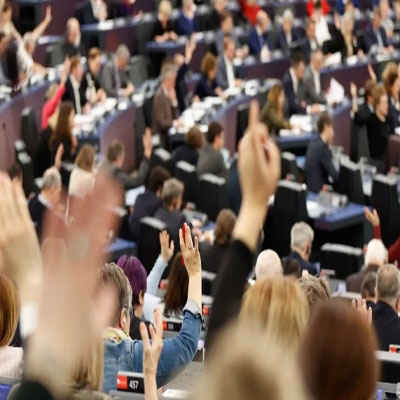
The European Deputies: reduce dependence on critical imported raw materials for the EU
europarl
There is an urgent need for a sustainable supply of key raw materials for EU industry. MEPs want to reduce dependence on critical imported raw materials for the EU's strategic industries. To enable the EU to become more digital, energy efficient and climate neutral, more Critical Raw Materials (CRM) such as lithium and cobalt are needed to produce batteries and electric motors. In fact, these technologies allow the development of strategic sectors such as renewable energy, the production of electric cars and digital technologies.
The green and digital transition will lead to growth in demand for CRM (it is estimated that, by 2050, demand for lithium in the EU could increase up to 21 times compared to 2020).
The already high exploitation of existing supply chains has been further tested by Covid-19. The pandemic has led to a shortage of critical raw materials in Europe, leaving the industry facing the challenge of sourcing resources.
Following Russia's war against Ukraine and the growing aggressiveness of China's trade and industrial policy, elements such as cobalt and lithium, among other raw materials, have become an issue at the center of geopolitical dynamics.
The EU's dependence on imports must be reversed
Due to heavy dependence on imports and an ever-decreasing number of suppliers, the EU is exposed to vulnerabilities and bottlenecks along the supply chain.
Currently, China produces 86% of the world's supply of rare earths (REEs). The EU imports 93% of its magnesium from China, 98% of its borate from Turkey and 85% of its niobium from Brazil.
At the September 2023 plenary, Parliament set its position on critical raw materials, urging the EU to expand its processing capacity and produce at least 40% of its annual consumption of strategic raw materials by 2030.
MEPs want the EU to diversify its sources of supply of critical raw materials and reduce its dependence on some non-European countries, and call for less bureaucracy, more innovation and a greater role for substitutes along the value chain.
They also want support for smaller businesses, economic incentives for companies to invest and produce in Europe, more research and development of alternative materials and more environmentally friendly extraction and production methods.
The report urges the EU to secure long-term strategic partnerships with third countries. Such partnerships must include knowledge and technology transfer, training and upskilling for new jobs.
Raw materials recycling in the EU
Raw materials that can also be obtained from old products are known as secondary raw materials. The deputies want to promote the recycling and recovery of critical raw materials from mining waste streams, to ensure reliable, safe and sustainable access to them and increase the use of substitute raw materials. While introducing dedicated recycling targets for critical raw materials, with a robust monitoring framework.
In its resolution adopted on 9 February 2021, Parliament called for stronger recycling standards and binding 2030 targets for the use and consumption of materials in response to the Commission's Circular Economy Action Plan published in March 2020 , aimed at achieving a circular economy by 2050.
Importance and advantages of a healthy Circular Economy
According to HPP critical raw materials management, this sector currently already employs around 350,000 jobs in the EU and over 30 million jobs in related manufacturing industries; the transition to a healthier and more circular economy could lead to a net increase of 700,000 jobs in the EU by 2030, without having to specify that it would all benefit everyone.
Tag
menu